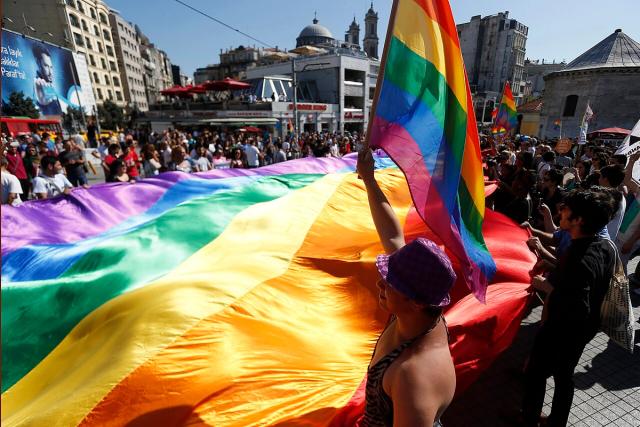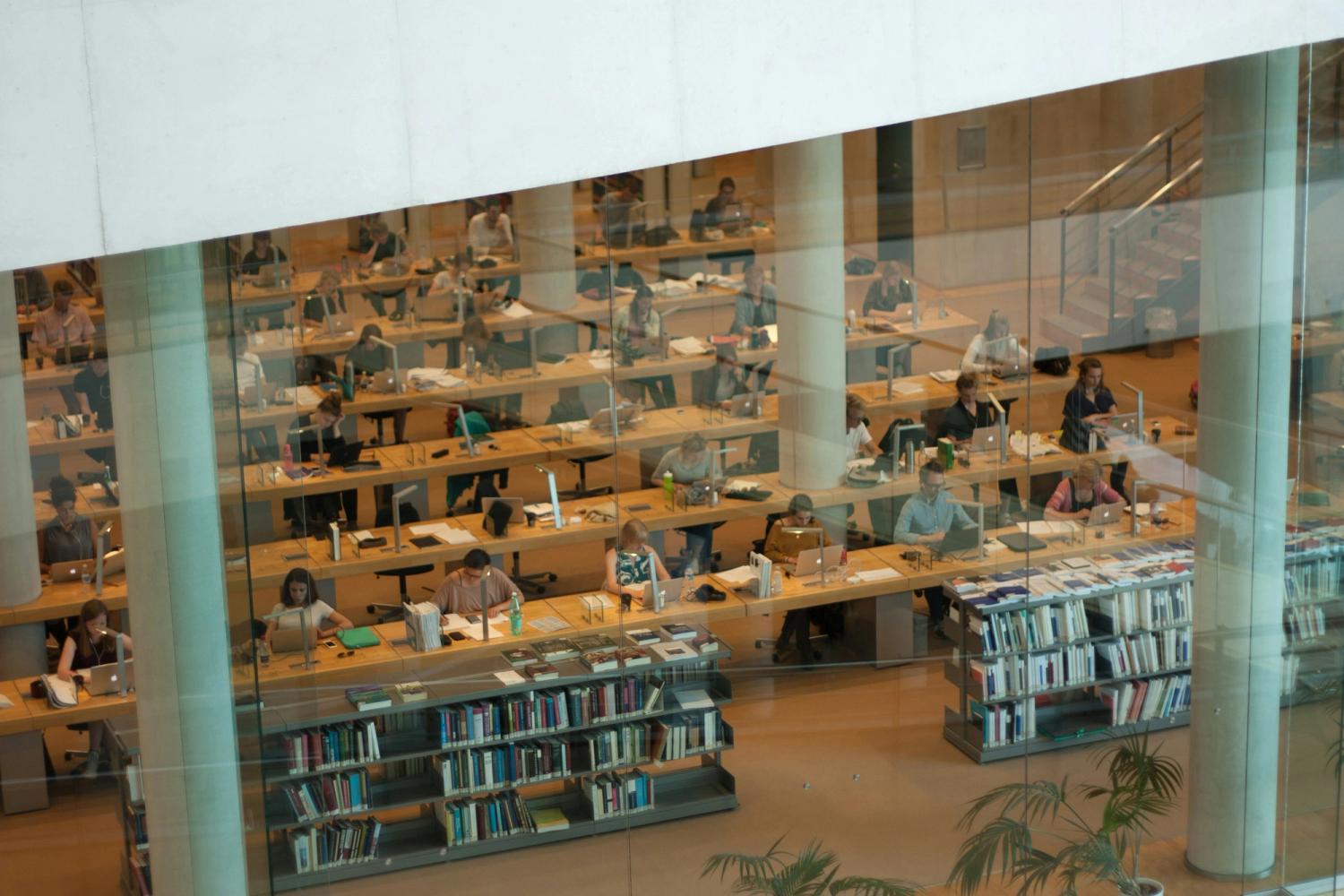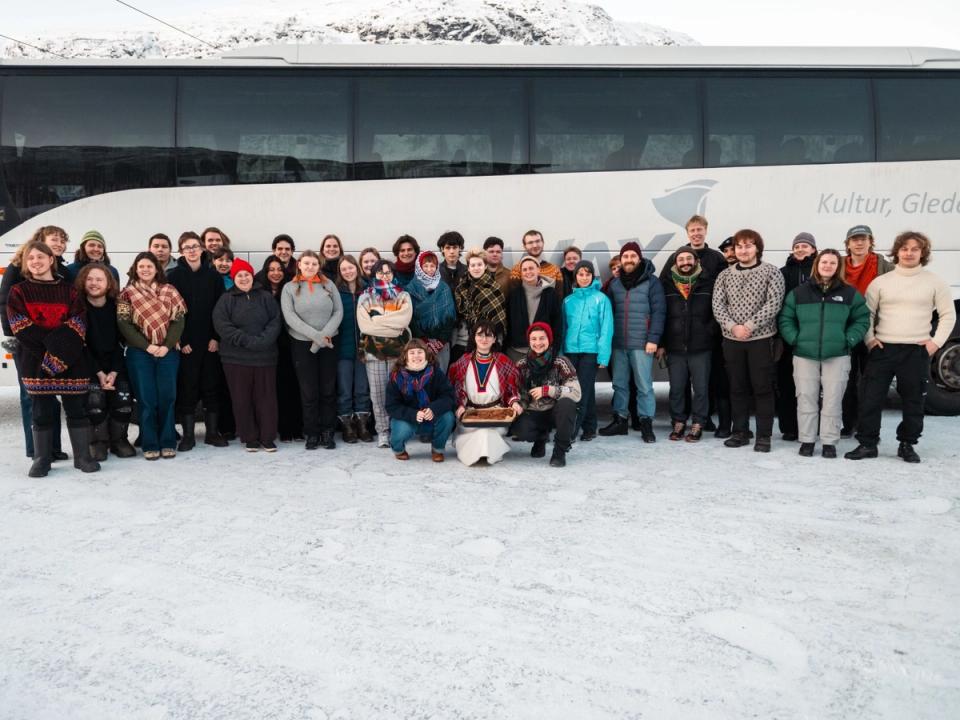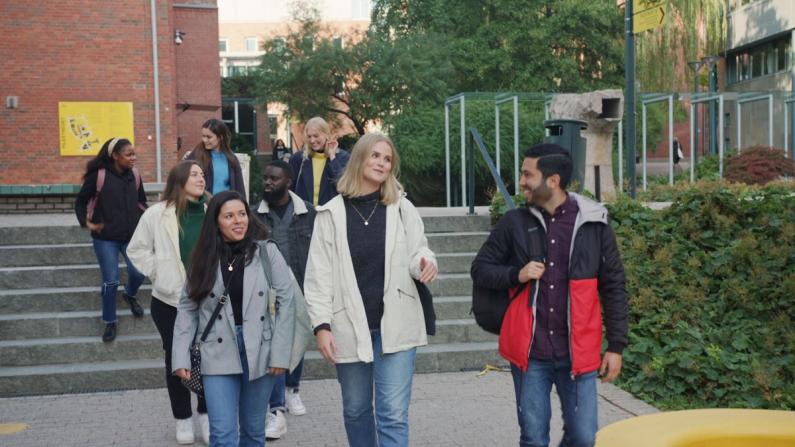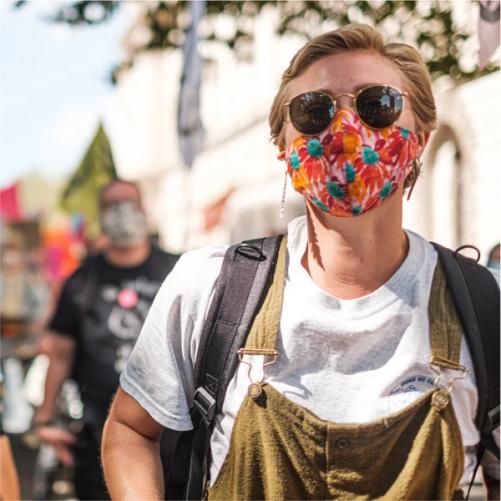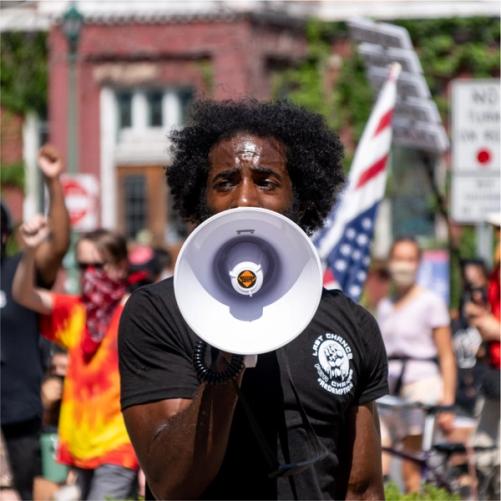Nyhet
A voice that will not be silenced
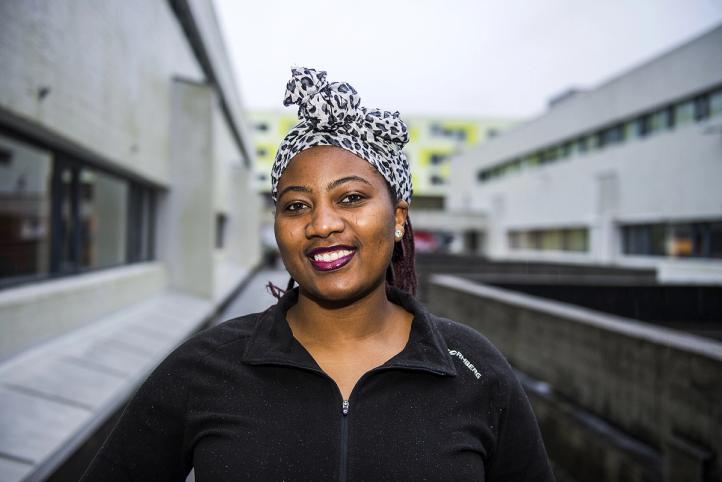
This article was originally published in the student newspaper Studvest.
President Robert Mugabe has ruled Zimbabwe for over three decades as a «dictator that calls himself a president», according to Joana Ruvimbo Mamombe. Under his rule and after countless arrests and assaults by the Zimbabwean police force, Joana does not feel afraid or intimidated – she feels powerful.
– As powerful as Mugabe’s government is, they were scared of me. Scared enough to arrest me. That means I am powerful too.
Zinasu and activism
Mamombe began her Bachelor in Molecular Biotechnology in Zimbabwe, while simultaneously advocating for women and students’ rights in a deeply «patriarchal and oppressive» environment. She began working with the Zimbabwe National Students Union – Zinasu – in 2012, when she started university, eventually becoming the first female Secretary General and soon after, the gender officer.
Zinasu is a national institution that fights for academic freedoms and human rights. Mamombe focused especially on female students, encouraging them to participate in student life despite the difficulties they often face. Political scientist and senior researcher at The Chr. Michelsen Institute (CMI), Elling N. Tjønneland, states that Zimbabwe, like many African societies, is socially conservative and patriarchal. Due to this, in times of oppression, women are more vulnerable and suffer disproportionately.
Mamombe has witnessed evidence of this.
– In such a patriarchal society, girls often shy away from becoming involved as students. They suffer abuse and harassment at the hands of other students, as well as teachers. A voice was needed to amplify these issues.
Mamombe decided to be that voice. She helped implement programmes and workshops to empower female students, and invited influential leaders and legal experts to discuss and unpick the law in relation to women. Educating girls on their rights was a particularly important aim, as «if they do not have that basic knowledge, they have no power.»
Evidently, as there was an increase in females involved in the student parliament and even winning elections, Mamombe’s efforts were proving successful.
Mamombe also worked towards securing academic freedoms and a fairer university system. One issue she mentioned was that there are high tuition fees in Zimbabwe, as well as a very high unemployment rate.
Indeed, while there are no reliable figures on the employment rate in Zimbabwe, the economy has collapsed and only a small figure of the population has a formal income, according to Tjønneland. Zimbabwe has been using the US dollar since their own currency crashed around 10 years ago. The country is running out of money and large number of the population has left to work elsewhere in order to survive.
Mamombe rightly posed the question; how are students supposed to pay? She wrote petitions to the government and when this did not suffice, she organised protests against these fees.
– Demonstrations and protests force a parliament to acknowledge you, they are harder to ignore, says Mamombe.
Countless arrests
One of these protests regarding high tuition fees resulted in a three month hospital stay for Mamombe, after she was arrested and tortured by the police.
This is not uncommon.
– I have been arrested countless times. I am not even sure of the number. It is just what is expected during protests. Simply being a human rights activist is hard. So many of us are arrested and silenced.
What was most troubling for Mamombe is the conditions she faced after her arrests.
– The rights of those arrested are not respected. I was beaten and sexually abused several times. Police officers molested and harassed me.
Mamombe’s family were not spared from suffering, either. Her home was raided, and her family were harassed by the police. At one point, her father even threatened to stop paying her university tuition fees if she did not stop the work she was doing.
– It can be a struggle to gain support because most people’s parents are afraid for them. Mine did not approve at first. I explained my passion to them, and they have supported me since.
Mamombe maintains «if I had a daughter, I would want her to be involved in fighting for freedoms. That is how strongly I believe in this.»
Tjønneland comments that «students can be quite vocal and give a national voice to the protests and calls for changes, and that has been the case especially in bigger cities like the capital [Harare]». He acknowledges the difficulties they face, however;
– The regime has responded through traditional tactics such as detaining student leaders, making it difficult for them to study and so on. At one point the university was shut down. They do this to try to force them to become silent and run into exile.
Mamombe says her strength to keep fighting in spite of such terrifying consequences stems from her yearning for progress in Zimbabwe.
– People are what keep me going. I feel a naturally ability in myself to represent disadvantaged people. My desire for change is stronger than my fear. I will die fighting this situation.
Current situation
Under the so far everlasting rule of Mugabe’s party, the Zimbabwe African National Union – Patriotic Front, Tjønneland described a «continuous crisis, ongoing for almost 20 years» in Zimbabwe.
– Zimbabwe has a governing political regime that is not prepared to give up and face the situation of growing dissent and demands for change. Although they manage to cling on to power, in all likelihood some elections have been rigged. Due to this, and the oppression of opposition parties, it has been difficult to throw them out in free and fair elections.
Mamombe believes the 2018 election will be paramount. There are a «many diverse social movements and political factions emerging. Hopefully when 92 year old Mugabe is no longer in charge things will change».
Tjønneland highlights that Mugabe is unwilling to relinquish power.
– We have come to realise that he has such authority that nothing much will change before he dies. What will happen after is unknown. The ruling party is still powerful despite losing much support, but it is deeply divided. There is a big internal fight occurring.
One important faction in Mugabe’s ruling party, led by the Vice-President Joice Mujuru, was expelled, leading to the formation of a new political party. This may help unify the a fragmented umbrella of divided opposition parties.
In terms of the situation activists face, there has been little to no improvement. In fact, with an election approaching in 2018, according to Mamombe, «tensions are already high, and things are getting worse».
– Right now, every day I hear of a colleague who has been beaten or arrested.
Tjønneland is in agreement with the fact that «in the short term things will get worse, before they get better». He attributes this to the uncertainty of Mugabe’s succession and the collapse of the economy.
Students at risk
Mamombe is doing a masters in Molecular Biotechnology at the University of Bergen thanks to the Students At Risk programme. The programme allows students who cannot continue their studies in their home countries do so in Norway. Mamombe’s name was passed on to this organisation and she was selected to come to Bergen. Without this opportunity, she would be unable to continue her studies as she was banned, along with other activists, from doing so in Zimbabwe.
Although Mamombe hopes to return one day, she is unsure if this will be a possibility.
– Leaving home was hard, especially because it was not out of choice but because the risk of staying was too high. I would like to go back, but even coming to Norway was a struggle. My passport was taken off me at the airport, for example. This is because they do not want you to learn somewhere else either; once you are educated, you are liberated.
She stresses that Students At Risk is a crucial programme. It has allowed her to gain knowledge about other places and young people in similar situations.
– Through STAR, we meet and share ideas and discuss how to expand this work into other countries. For progress, there is a need to come together and share our voices. Norway is very free and safe. This means I can use my voice here for other students at home.
Joana emphasises that she is unapologetic about sharing her experiences.
– The more we speak, the more solidarity we gain. I am bold enough to be the voice of the voiceless.

